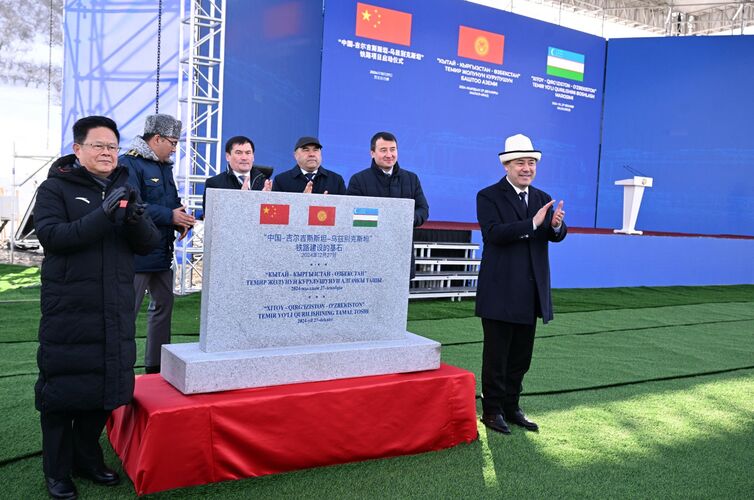Kyrgyzstan Breaks Ground on First Tunnel of China-Kyrgyzstan-Uzbekistan Railway
Construction of a 12-kilometer tunnel has commenced in Kyrgyzstan’s Jalal-Abad region, marking a significant milestone in the development of the China-Kyrgyzstan-Uzbekistan railway, a strategically important transport corridor aimed at linking East and West. At the groundbreaking ceremony on April 29, Kyrgyz Deputy Chairman of the Cabinet of Ministers Bakyt Torobayev emphasized the railway's broader significance. “This project is not only of infrastructural importance. It opens the way to improving the quality of life, economic growth, and strengthening ties between regions and peoples. It will create new opportunities for trade, investment, industrial development and logistics, provide thousands of jobs, and give a powerful impetus to the economies of our countries,” he said. A Major Infrastructure Undertaking The railway will span 523 kilometers, with over 300 kilometers passing through Kyrgyzstan. In addition to the current tunnel project, two more large tunnels are planned in the Naryn and Jalal-Abad regions. The project involves challenging terrain and extensive engineering work, including the construction of 46 bridges and 27 tunnels. The China-Kyrgyzstan-Uzbekistan railway was officially launched during a ceremony in Jalal-Abad on December 27, 2024. Once completed, the route will connect Kashgar (China), Torugart, Makmal, and Jalal-Abad (Kyrgyzstan), and Andijan (Uzbekistan). The railway is expected to have an annual cargo capacity of up to 15 million tons. Currently, neither Kyrgyzstan nor Uzbekistan has a direct railway connection with China. At present, Central Asia’s only rail link to China passes through Kazakhstan, underscoring the significance of this long-anticipated trilateral project.






